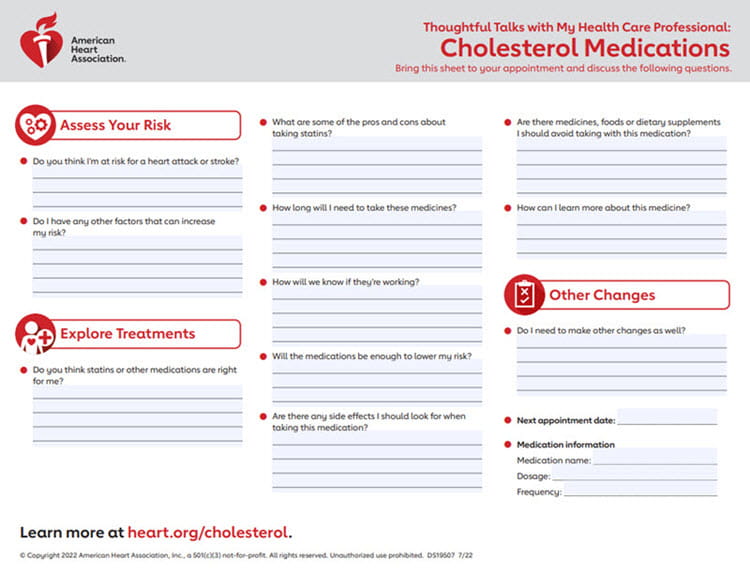Thoughtful Talks With My Health Care Professional: Cholesterol Medications
By working together, you and your health care professional can choose the best treatment plan for you. While a healthy lifestyle is key to prevent and treat high cholesterol, you and your health care professional may discuss adding medications to help improve your cholesterol and lower your risk of having a heart event or stroke.
When medication is needed, statins provide the most effective lipid-lowering treatment in most cases. If you have problems taking a statin or if a statin alone doesn’t lower your LDL cholesterol enough, there are some other drug options. For example, if you have very high cholesterol or if you have already had a heart event or stroke, you and your health care professional also may discuss adding other LDL-lowering drugs.
Ezetimibe (cholesterol absorption inhibitors) prevents cholesterol from being absorbed in the intestine. It’s the most commonly used non-statin agent.
Bile acid sequestrants cause the intestine to get rid of more cholesterol. Some names are cholestyramine, colestipol and colesevelam.
PCSK9 Inhibitors are powerful LDL-lowering drugs that bind to and inactivate a protein in the liver to lower LDL (bad) cholesterol. Some names are alirocumab and evolocumab.
The following medicines are triglyceride-lowering drugs and have mild LDL-lowering action. But data does not support their use as an add-on to statins.
Fibrates are especially good for lowering triglyceride (blood fat) levels and have a mild LDL-lowering action. Some names are gemfibrozil, clofibrate and fenofibrate.
Niacin, or nicotinic acid, is a B vitamin that limits the production of blood fats in the liver. Take this only if your health care professional has prescribed it. It lowers triglycerides and has mild LDL-lowering action.

These questions can help you start the conversation with your health care professional. (PDF)





